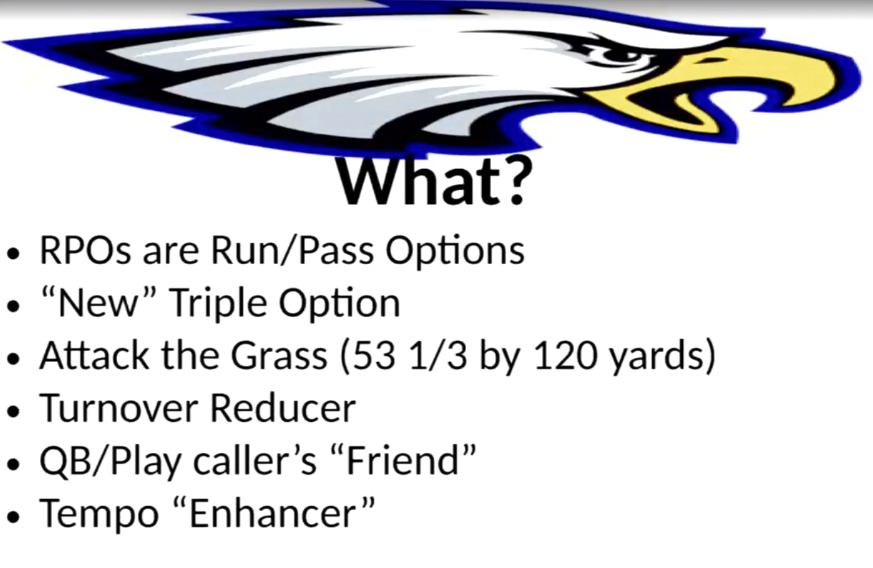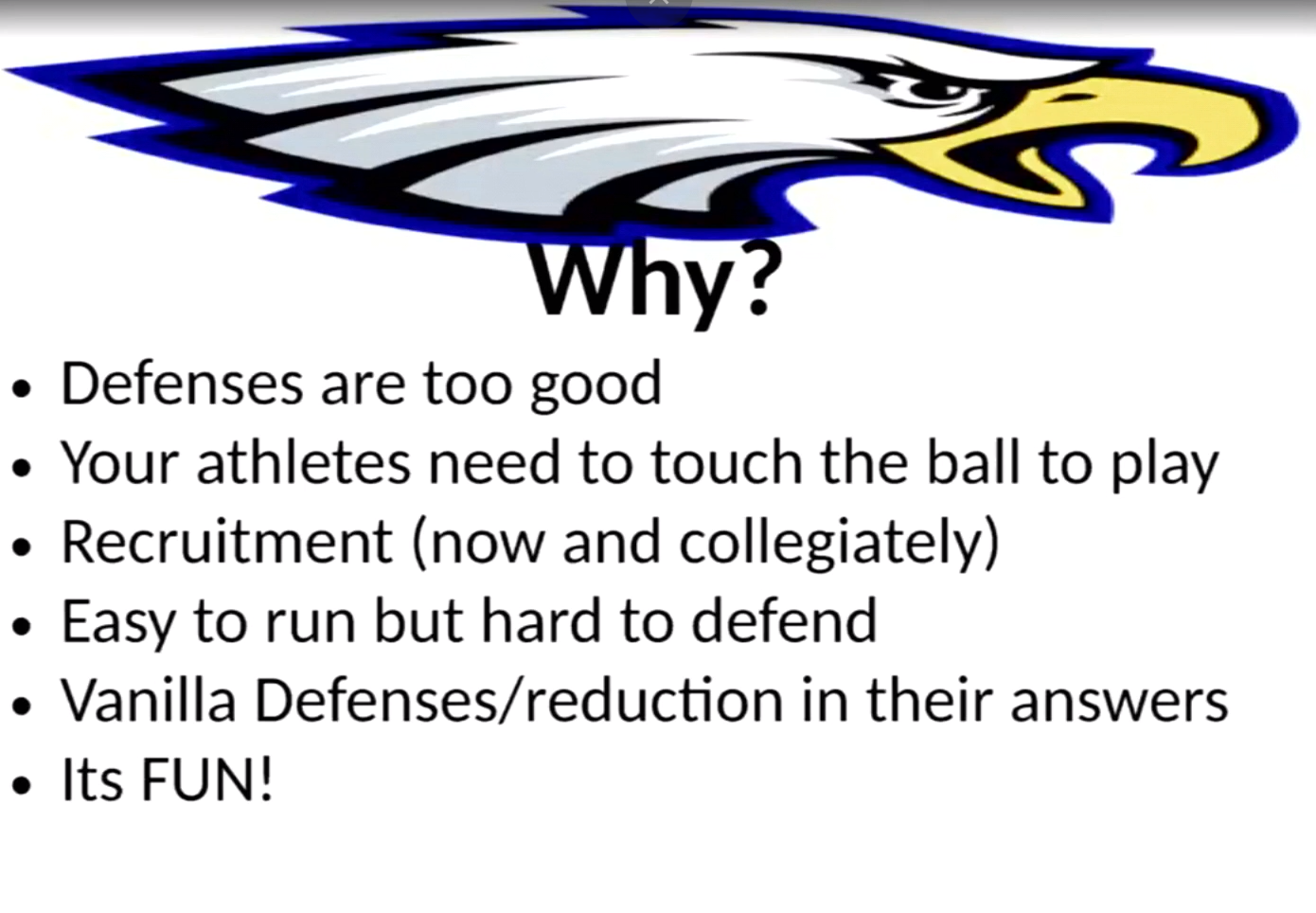Why Use RPOs in your Offense?
Posted by Rich Hargitt on Dec 25th 2018
Some offensive strategists hypothesize that a playbook can be constructed with a quick screen or a quick pass attached to almost every run play in an offense’s arsenal. The evolution of the run-pass option (RPO) into today’s offensive systems has not only enhanced the game but changed the nature of spread offensive football – in many ways engulfing it.
In fact, a review of high school and college offenses reveals that the concept of packaging runs and passes together has resulted in the creation not just of a hybrid offense but an entirely new offense in and of itself.
The RPO offense provides play callers with tremendous flexibility in a number of situations when confronting a defensive counterpart. As such, the capacity to package concepts together is limited only by the play caller’s level of creativity and his team’s on-the-field capabilities.
You don’t need Brett Favre
Before last season, our quarterback had never started at the high school level. He was a defensive back. Eventually, we coached him up to the point where he was the eighth-ranked passer in of South Carolina with regard to completion percentage. RPOs are a big part of his success.
What are RPOs?
For one thing, RPOs are turnover reducers. Last year, we threw the football almost 300 times with six interceptions the entire season. It's the lowest number of interceptions a team I’ve coached has ever had since I first became a play caller.
Part of our success is because we were asking the quarterback to do things that are simple. We were asking him to put the football in places where – most of the time – there was already a wide-open receiver. We were asking him to, essentially, choose where he goes with the ball.
Most of the time, it's obvious where the quarterback should throw the ball. At the least, we made it pretty obvious by the way we asked him to read the field. Much of the time, he threw the ball to people who weren’t covered.
As a result, we interceptions fell. So did incompletions, which increases our ability to set the tempo for the game.
At some point, a coach needs to ask himself: Why should my team run an RPO? There are a lot of reasons.
Why Run The RPO?
Defenses are complicated and filled with playmaking athletes with innate abilities to get to the ball. Defensive coordinators are smart and pick up tendencies on film. Players come off the ball from all sides with all kinds of pressures. They've got zone pressures and man pressures. They can slide to front. They can change fronts. They can change coverages.
Offensive coordinators can’t outsmart every defense and everything they do. To be honest, don’t often try. We run what are players are capable of running. We may go faster, but RPOs are really the counter to defensive evolutions. They add confusion and keep the defense guessing both presnap and postsnap.
They give a quarterback options.
What RPOs do is force defenses to simplify. The coach whose team runs RPOs has to empower his quarterbacks to read and recognize the key options at the line of scrimmage that put him in the right play. I've never been a big “check-with-me” guy. I would prefer to let the quarterback make the decision as things are developing in front of him.
What does an RPO do?
As coaches, we need to start giving such institutional freedom to our quarterbacks. If you currently run a spread offense, I assume you're already doing this. You are already giving your quarterback a lot of checks and things to adjust.
In reality, you are providing your quarterback with a lot of things that he can manage at the line of scrimmage, whether it be with protection or routes.
RPOs bleed into all of that. They make it simple for a coach to turn the reins over a little bit more to the quarterback. Granted, this means time is invested in the film room and on the practice field. But as a play caller, you're probably doing those things anyway.
RPOs force an opponent to play vanilla defense. At a minimum, it decreases the number of options in the defense’s arsenal. All factors considered, we don't want to give the defense a buffet of things that they can do to us. By including a heavy dose of RPOs, there are a lot of things they can't do. It really reduces the number of answers that they can have for what we do offensively.
We are getting to the point now where we run a lot of RPOs. We're up to 13 different versions of RPOs that we can attach to four different runs, which is quite a combination of things.
As such, most of the defenses we play against are getting relatively simple. In response to our RPOs, they're giving us one main answer, maybe two.
When that happens, it's easy to attack them.



